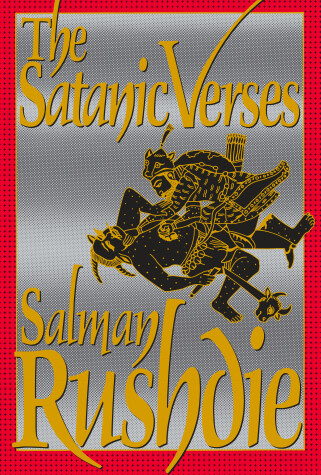Reviewed by Michael @ Knowledge Lost on
I started off really enjoying this book; it was bizarre and I had no idea where this book would take me but after the millionth dream sequence I did feel very lost. I don’t begin to understand the religious aspects of this book or the life of Muhammad so I felt like I was missing a lot from this novel. I did end up asking a friend about life as a Muslim and the issues she faced with religion in western society which did lead to her fully venting and while it was great to get her opinion, I was left with more questions than answers. I finally had to try and accept that Rushdie is just trying to vent his own issues about his personal dilemmas about faith and being disillusioned with both cultures.
While this book is considered to be both controversial and acclaimed, I found it hard to see this book as either. Of course I understand if people take issues with this book but for me it felt more like Salman Rushdie needed to express his concerns and it was more a personal problem than a stab at the entire religion. As for the critically acclaimed aspect, sure the books was beautifully written but the magical realism was probably turned up to the extreme in this novel and it was difficult to piece together. Also if you want to understand this book fully you may need to study theology and migrate to a place that clashes with your cultural ideals.
Overall this book was confusing and made my brain feel like it was melting; there is so much weirdness and depth to the book I have a feeling I will never grasp it in a way I would like to. The amount of dream sequences didn’t help this book as made it a lot harder to keep up with. I would love to know what someone that has a similar issue with religion and culture butting heads thinks of this book.
I would be interested in reading this book again, maybe when I have a degree in literature and have the tools to fully analyse everything in this book. But for now it was too intense for me to get full enjoyment out of it. I’ve heard Salman Rushdie is not an easy author to read and I can see why. This book’s final rating is not a reflection of my enjoyment of the book but more of the proses and the fact that it has stuck with me well after I’ve finished it. I don’t fully understand it but I now appreciate what he did with The Satanic Verse.
Reading updates
- Started reading
- 9 October, 2012: Finished reading
- 9 October, 2012: Reviewed
